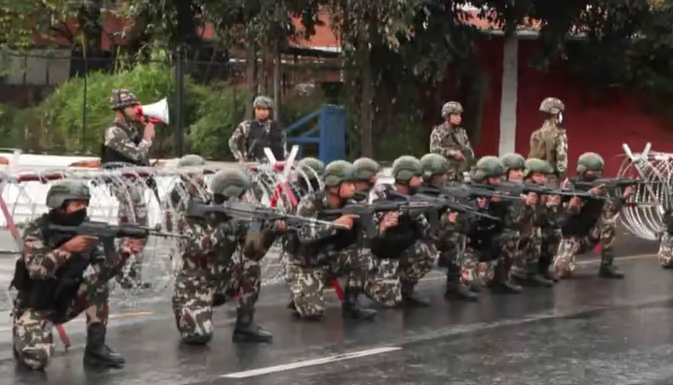Nepal’s Interim PM Selection Sparks Protests
- September 12, 2025
- 0

Nepal is currently experiencing a political impasse as the nation grapples with the selection of an interim Prime Minister. The process has sparked widespread protests, with supporters of various candidates taking to the streets. Among those being considered for the position is former Chief Justice Sushila Karki, whose potential appointment has become a focal point of contention.
The protests, which began as a response to a controversial social media ban, have now evolved into a larger movement addressing issues such as corruption and unemployment. Demonstrators are voicing their dissatisfaction with the current political climate and demanding transparency and accountability from their leaders.
Nepal’s political landscape is currently marked by uncertainty as the country struggles to appoint an interim Prime Minister. The decision is crucial for maintaining stability and ensuring that governance continues smoothly. However, the process has been fraught with challenges, leading to heightened tensions among political factions and the public.
Former Chief Justice Sushila Karki has emerged as a prominent candidate for the interim Prime Minister role. Her candidacy is seen by some as a potential step towards reform, given her background in the judiciary. However, her appointment is not without controversy, as various political groups have differing opinions on her suitability for the position.
Initially sparked by a ban on social media platforms, protests have grown to encompass broader societal issues. Citizens are expressing their frustration with systemic corruption and high unemployment rates, which they believe are exacerbating the country’s problems. The demonstrations highlight a growing demand for change and reform within Nepal’s political system.
The ongoing protests and political deadlock pose significant challenges to Nepal’s governance. The inability to swiftly appoint an interim leader could lead to further instability, affecting both domestic policies and international relations. As tensions rise, there is an urgent need for dialogue and compromise among political leaders to address the concerns of the populace.
The outcome of this political impasse will have lasting implications for Nepal’s future. A successful resolution could pave the way for much-needed reforms and improvements in governance. Conversely, prolonged unrest may hinder progress and exacerbate existing issues. It remains crucial for all stakeholders to work towards a peaceful and constructive solution.